Try Tap to Pay with Zeller App
Accept contactless payments with your iPhone or Android smartphone instantly — no additional hardware or sign up required.
Protect your business from rising costs. Switch to zero-cost EFTPOS. Learn more

Accept contactless payments with your iPhone or Android smartphone instantly — no additional hardware or sign up required.
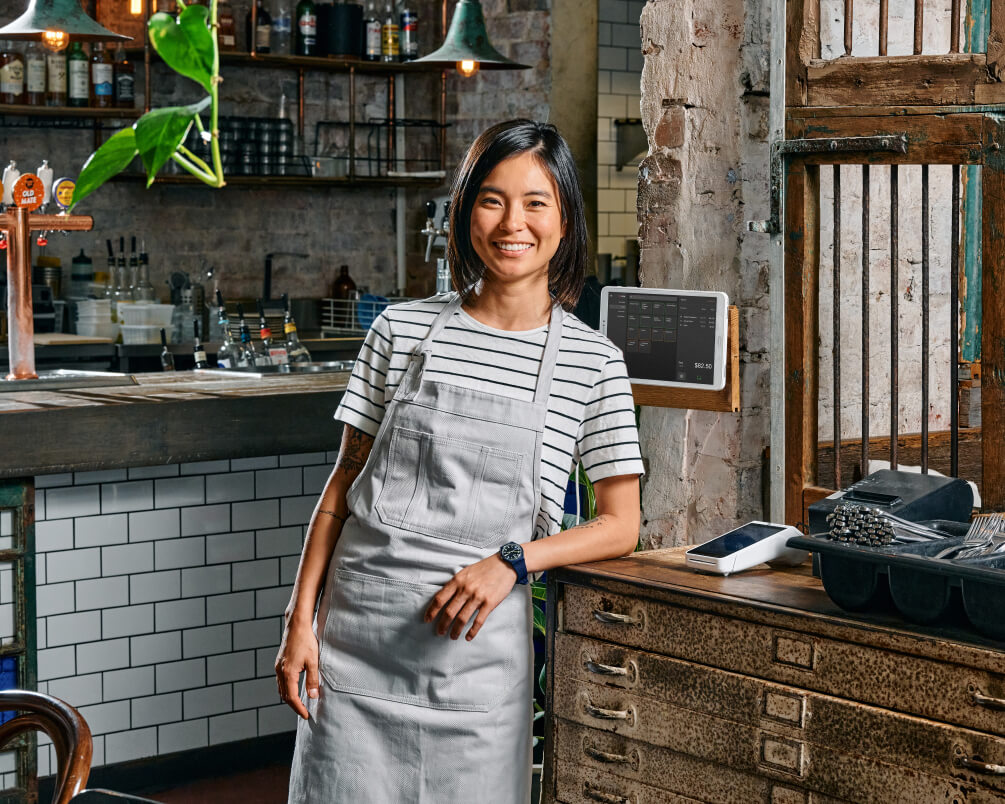
Speak to Zeller Sales about a custom payments solution with lower card processing rates, affordable EFTPOS technology, and priority support.

Accept every payment from every customer with Zeller Terminal — whether you're selling at the bar, tableside, or on the go.
A butcher, a baker, a coffee maker. Rathdowne Street bears all the hallmarks of a typical village, and yet, it lies just three kilometres from the central business district. After more than 150 years, this pocket of Melbourne has maintained its old-world charm, and the business community continues to thrive. Throughout its history, the strip has continuously been serviced by owner-operators, each with their own stories, families, and passions. With every new generation, these traders have continued to breathe new life into Rathdowne Village, and its vibrant atmosphere today is a testament to them.
To better understand the evolution and success of this unique street, we peeled back the layers of its history and spoke with five businesses that paint a picture not of work, but of family, community and loyalty.

Surveyed in the late 19th century following the allotment of the Melbourne General Cemetery, Carlton North was established as an extension of Melbourne’s growing residential suburbs. However, it wasn’t until the cable tram route was introduced in 1889 – running from the engine house on Park Street, down the length of Rathdowne Street and towards St Kilda – that the suburb of Carlton North really took off. By 1915, the area’s iconic terrace houses and verandah-clad shop fronts were established, along with religious buildings, a school and government services.
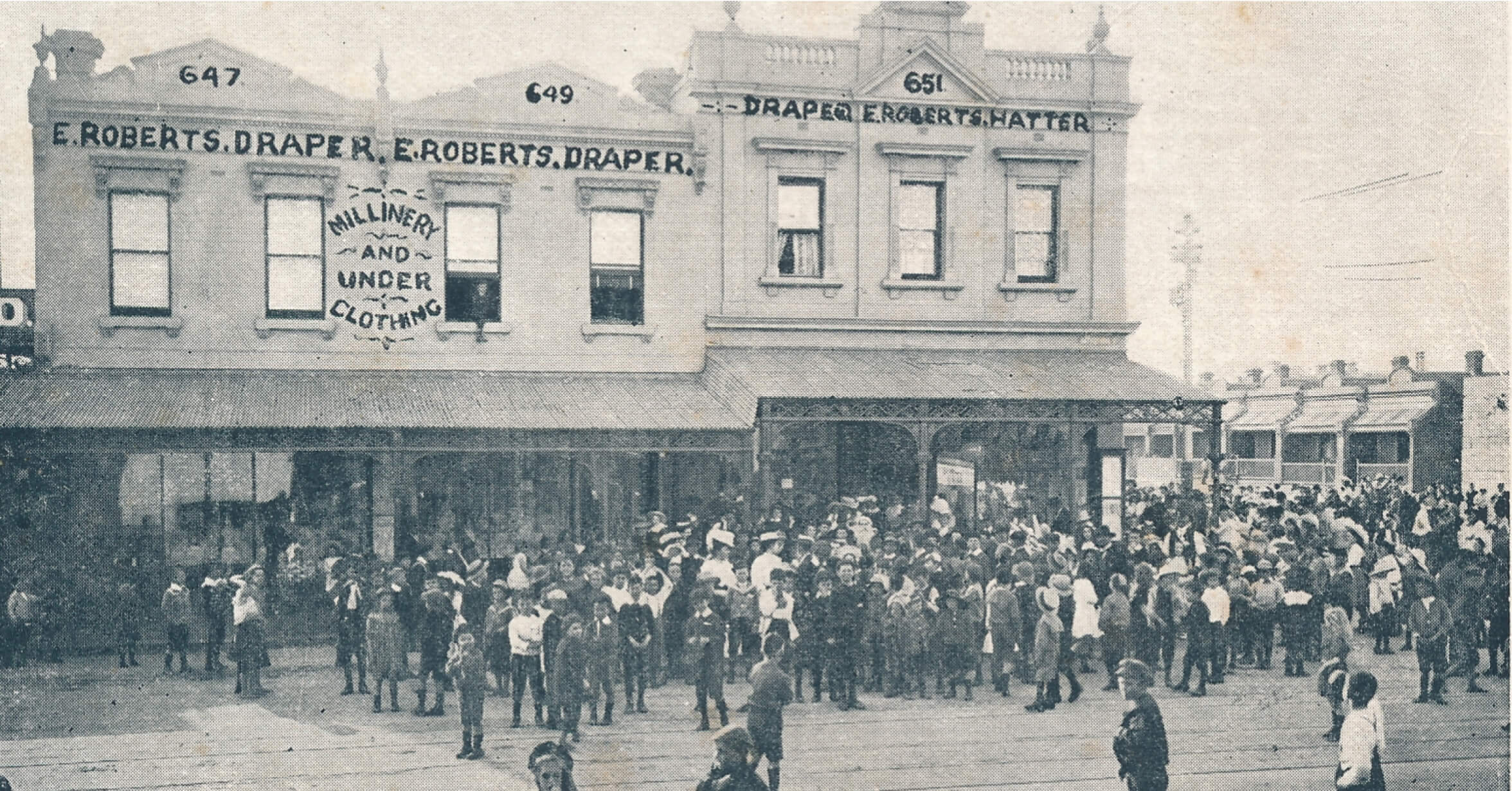
647, 649, 651 Rathdowne Street, in 1900.
Source: Libraries Victoria
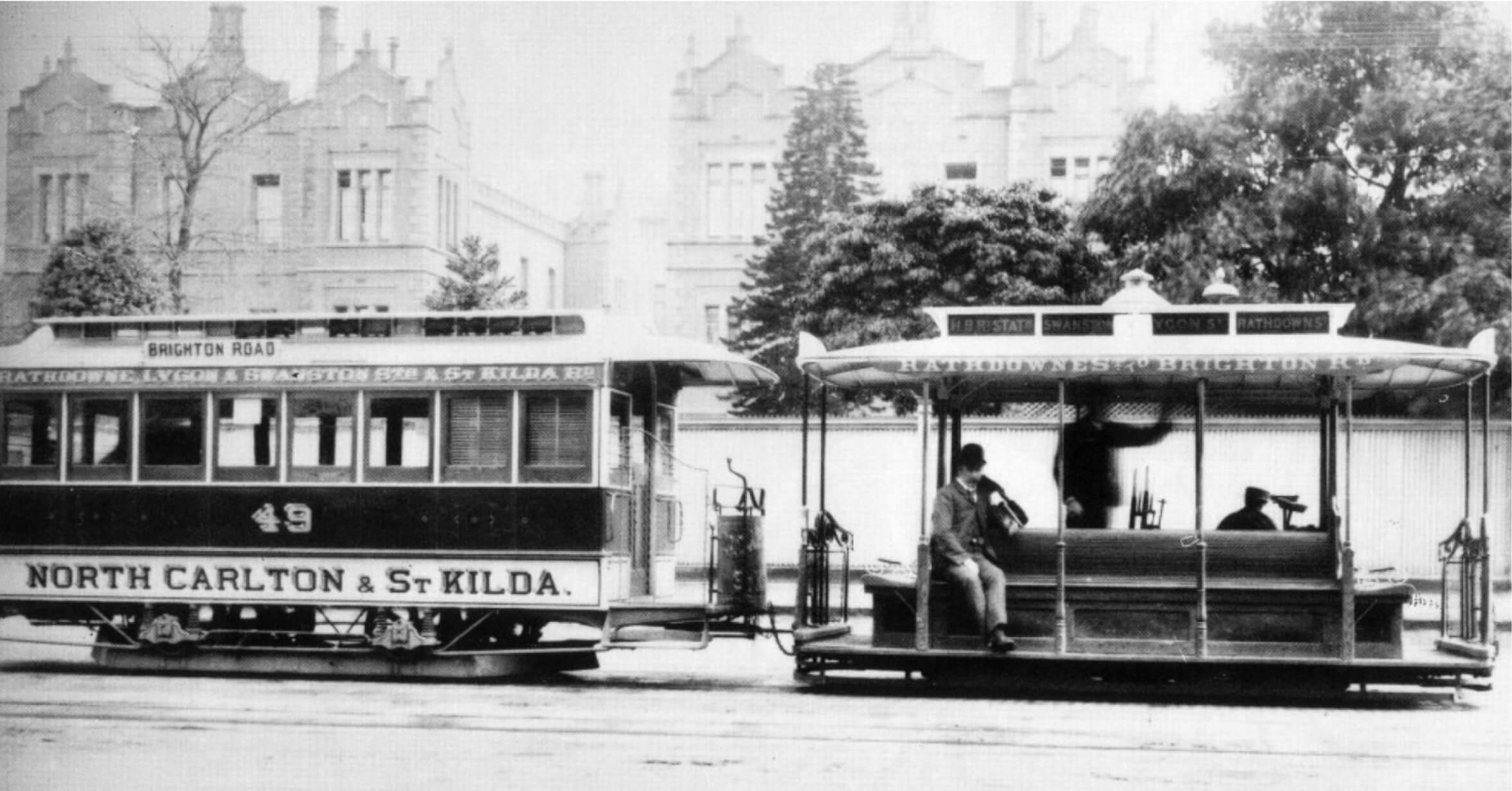
The cable tram ran from the engine house on Park Street, down the length of Rathdowne Street and towards St Kilda.
Source: Carlton Community History Group (CCHG)
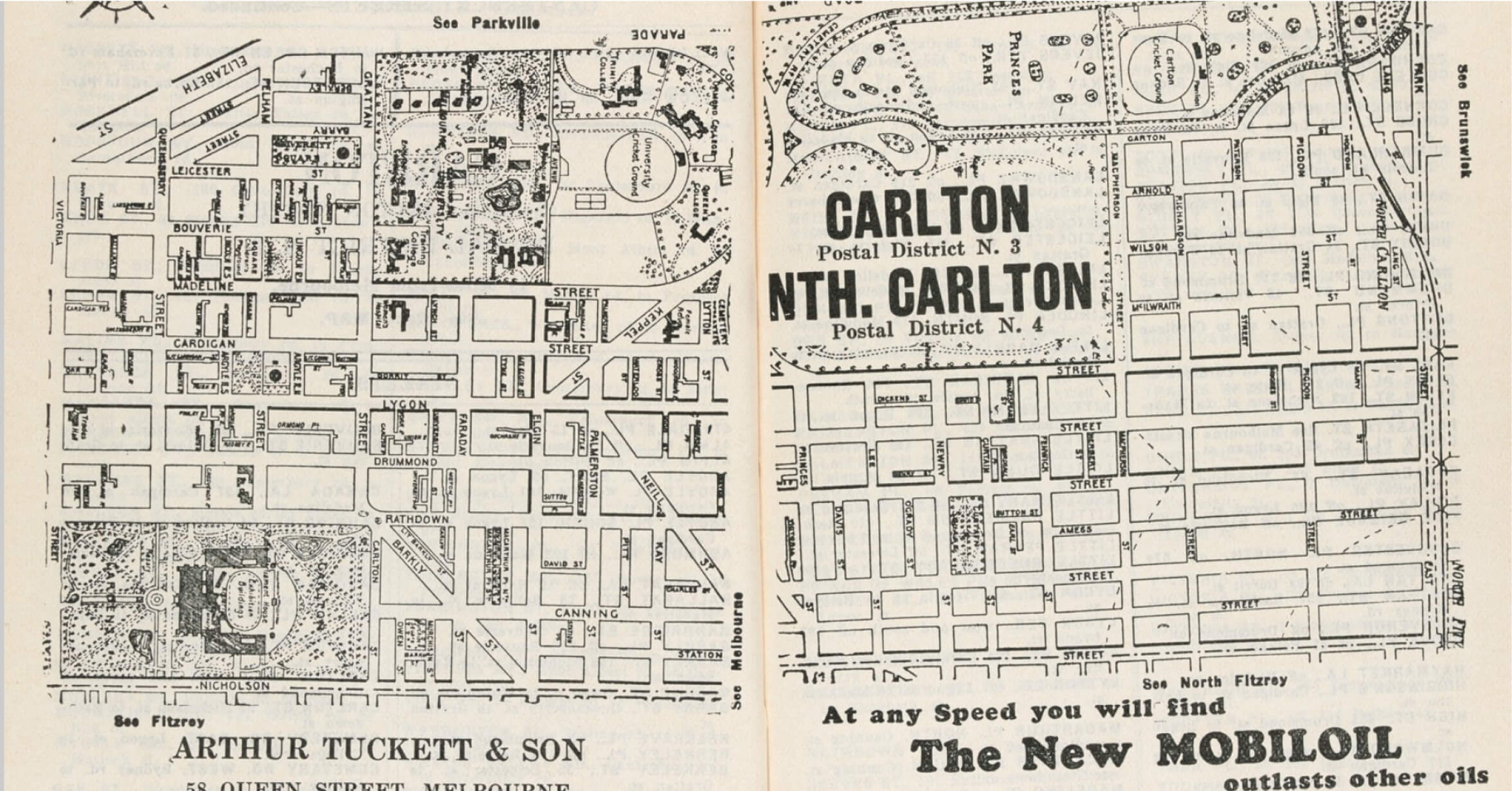
Map of Carlton North from the 1930 edition of the Collins' Street Directory and Public Guide.
Source: State Library of Victoria
At this time, much of the community was made up of Eastern European Jewish families who arrived just before the war. In a memoir, Sym Wolski writes facetiously “I was born at the beginning of World War 2 in a small shtetl just a little removed from Bialystock called Carlton. How it got its Anglo-Saxon street names I don’t know.”
The ‘shtetl’ – meaning ‘village’ in Yiddish, served as a supportive community for the newly arrived immigrants, who could virtually get away without speaking any English, so much so that it was sometimes referred to as ‘New Jerusalem’. A part-time Hebrew and religious school was established, and everyday necessities were sourced from local businesses bearing names such as Glickman, Gotlib, Polonsky and Halperin. This Jewish community was instrumental in shaping Rathdowne Village as we know it today.
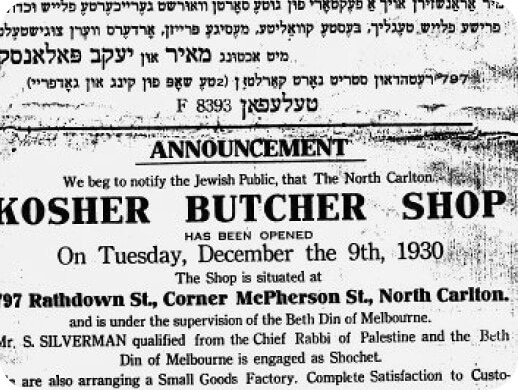
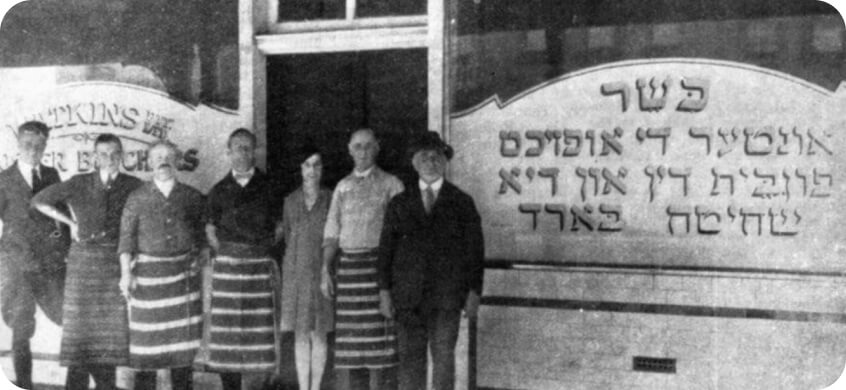
As the Jewish population moved out of Carlton towards the eastern suburbs in the 1950s, many of the grocers stocking gefilte fish, corned beef or challah loaves were no longer viable. At the same time, Australia's ‘displaced persons’ programme was bringing in thousands of migrants from war-stricken Europe, largely from Italy, Greece and Yugoslavia. By 1971, almost 29% of Carlton North’s population were native Italians.
Arriving with suitcases full of coffee and the promise of a new start, the Italian community gave Carlton North a new identity. Espresso bars opened; grocers started stocking tins of tomatoes, mortadella and parmigiano; the black and white stripes of the Italian soccer team Juventus were emblazoned on the corner of Newry and Rathdowne Streets.
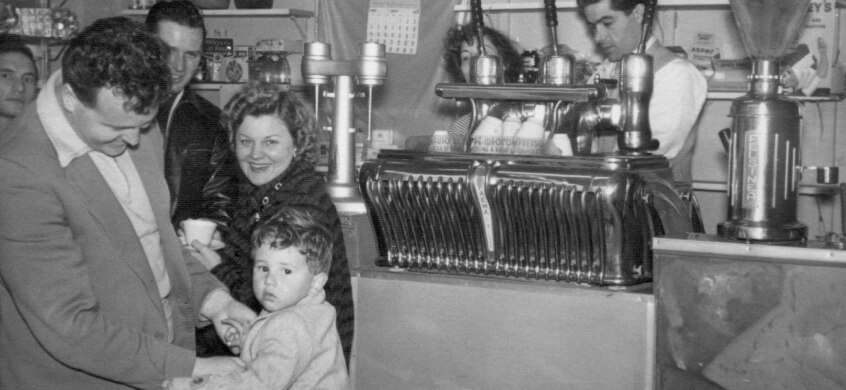
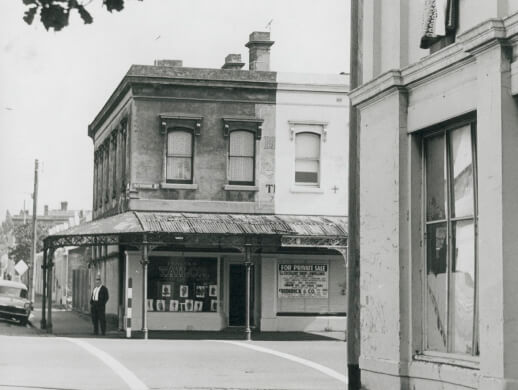
Among this new wave of immigration were two families: the Cavallaros, from the Sicilian island of Lipari, and the Donninis from Rome and Modena. The former established T. Cavallaro & Sons Pasticceria in Footscray in 1956, while the latter opened University Café in 1952, housing one of the city’s very first coffee machines. These two families – along with many others – introduced Melbourne not only to the joys of cannoli and espresso but to a ritual and a sense of community that has helped shape the city’s culture and provided a blueprint for so many other family businesses.
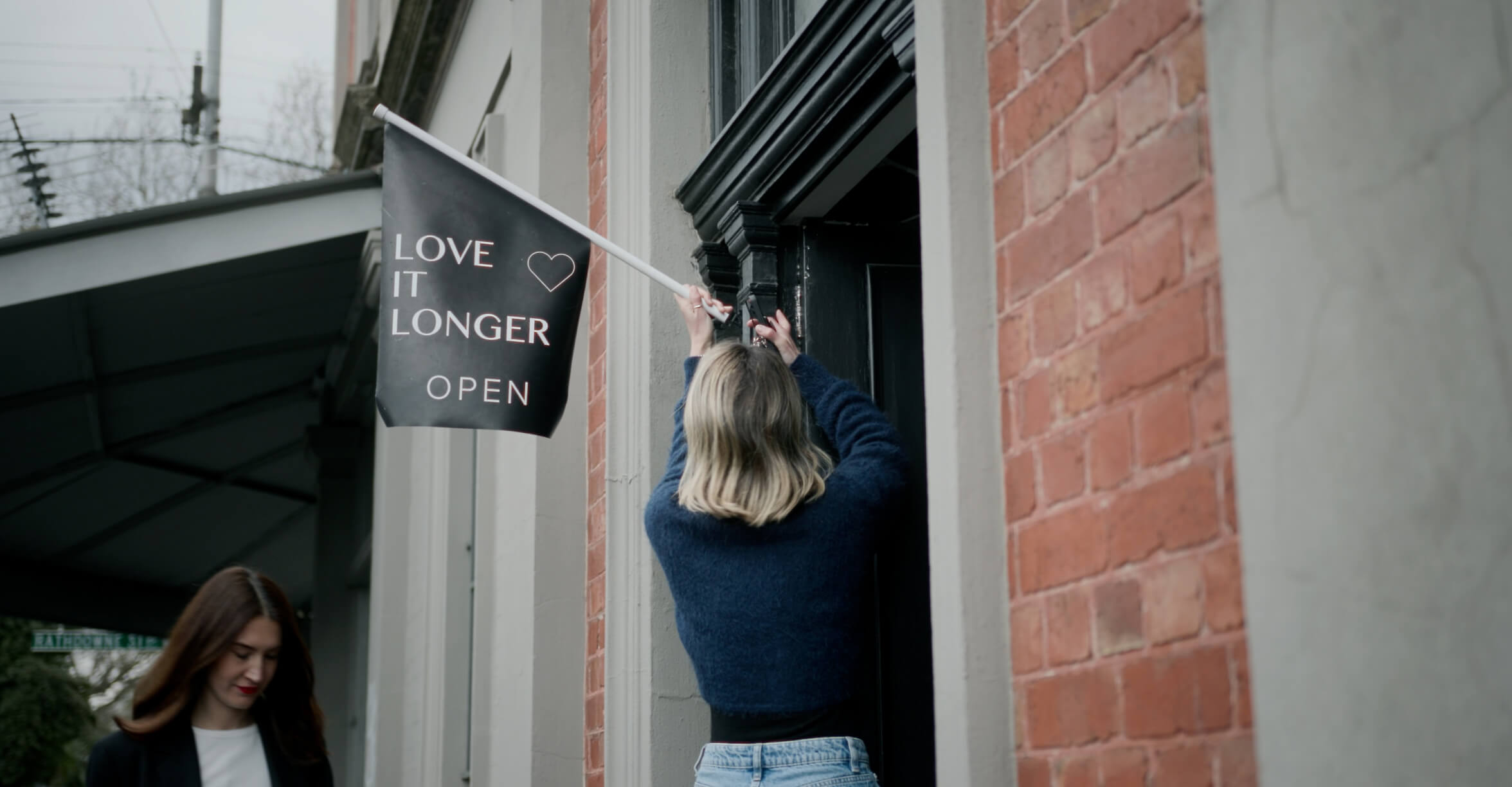
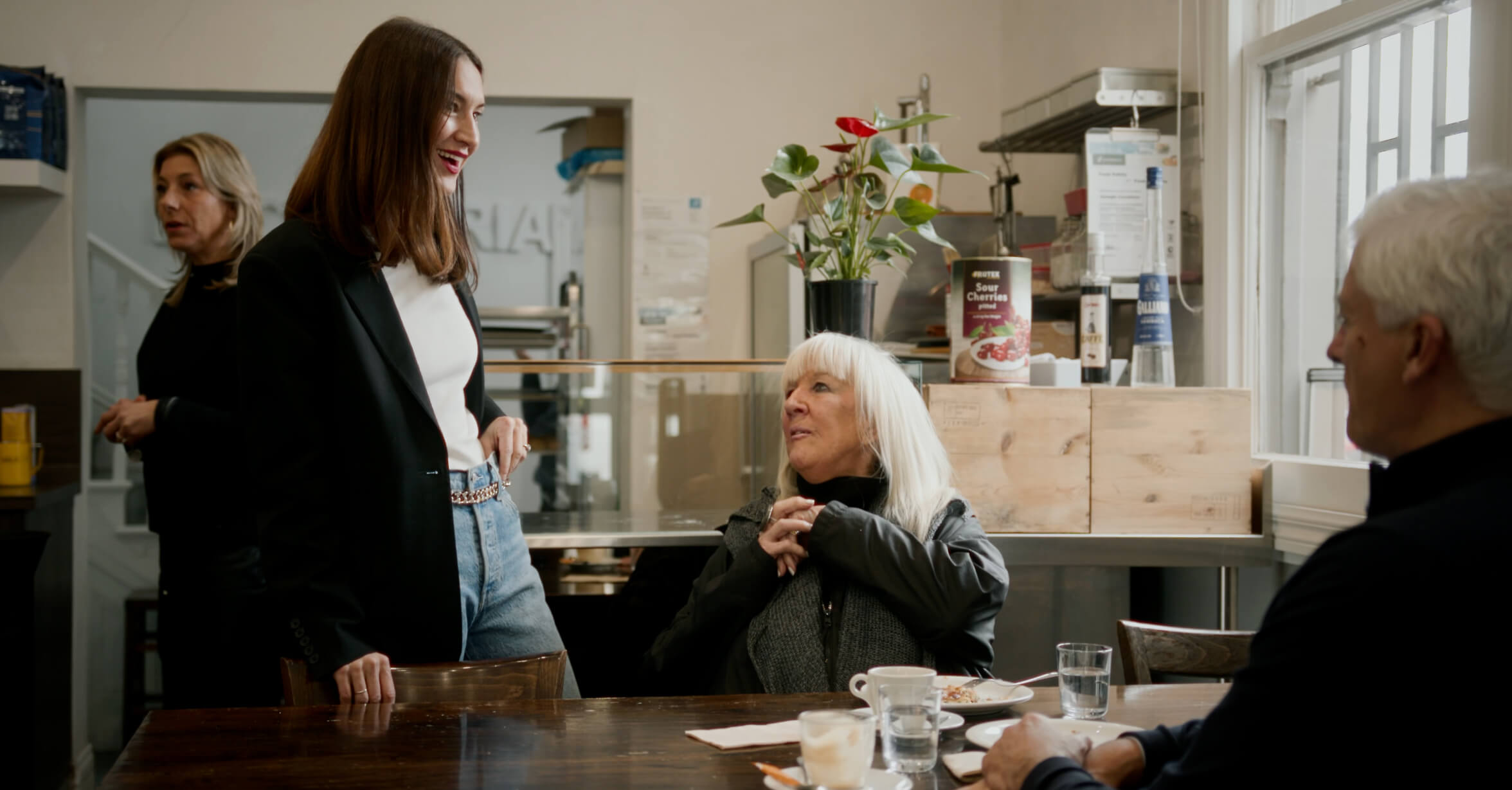
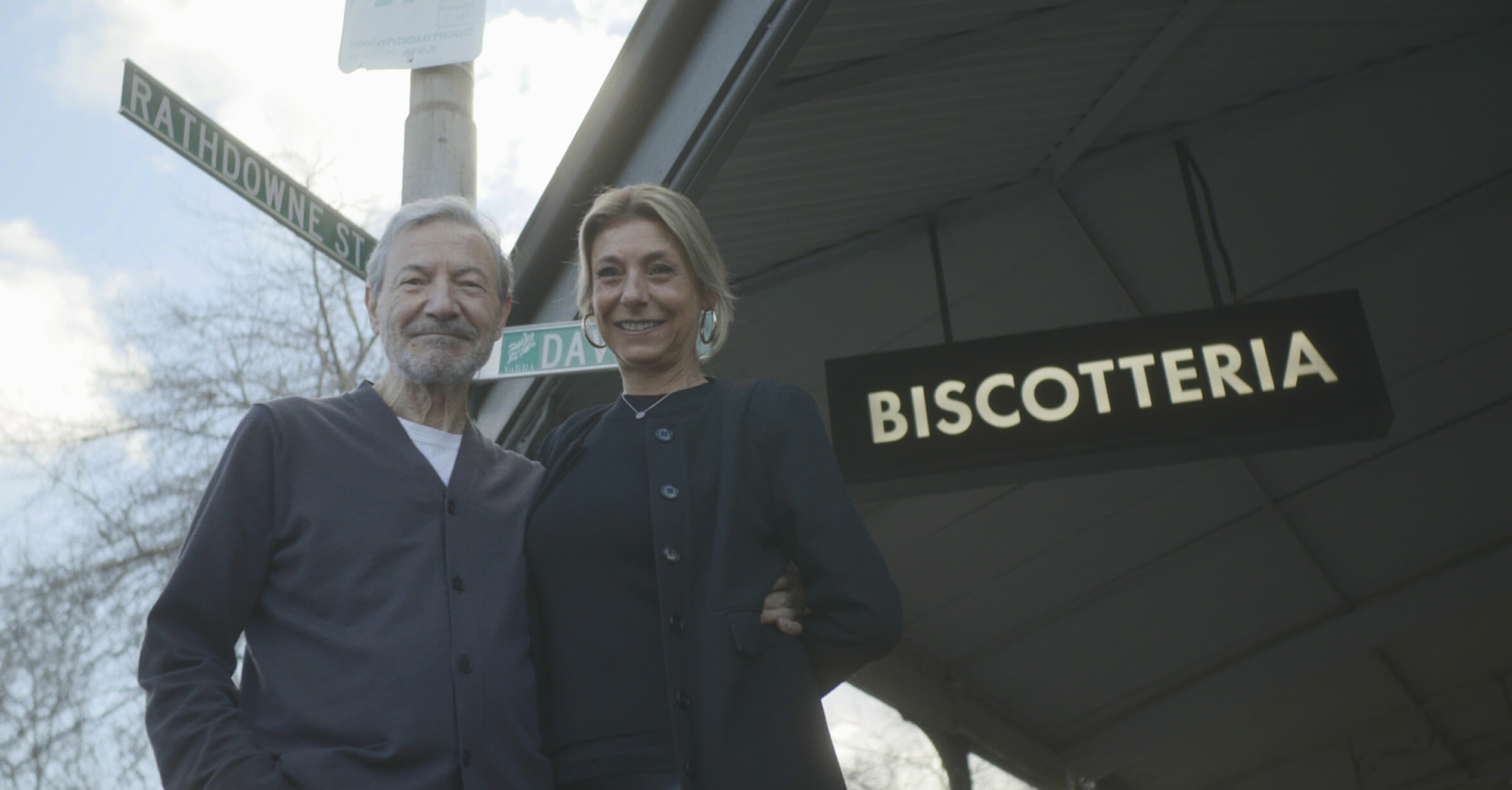
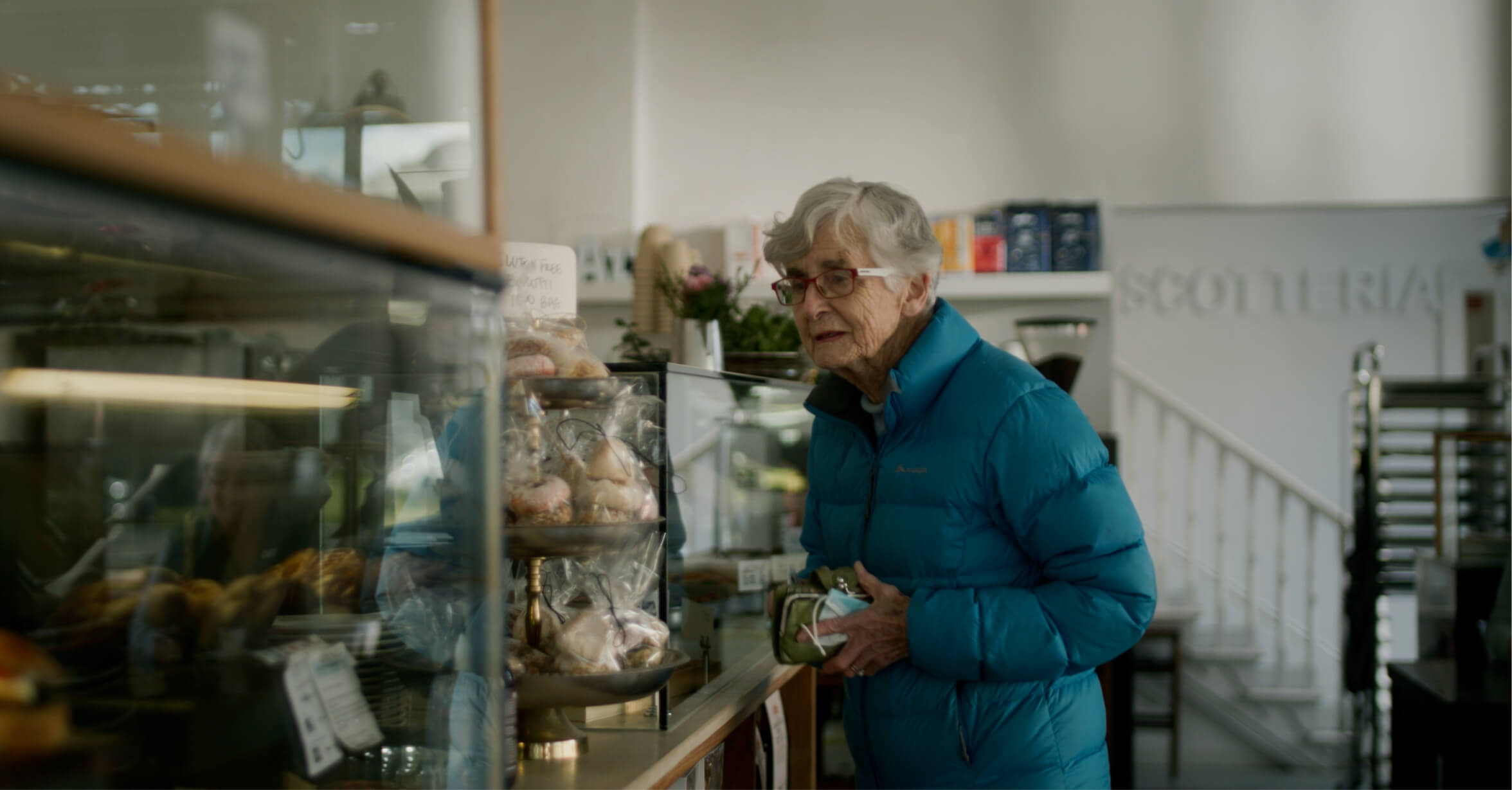
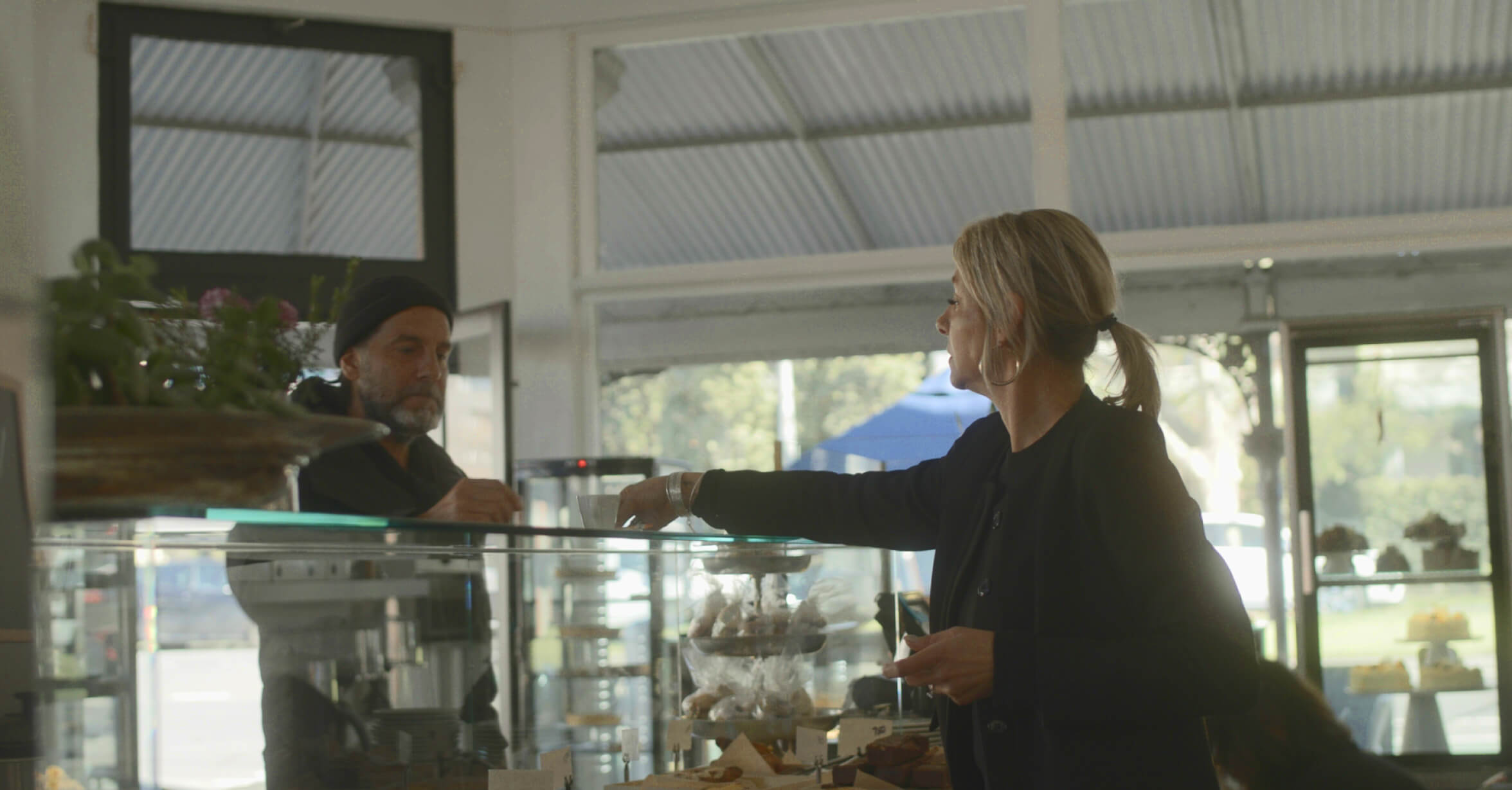
Today, these two families can both be found working at 288 Rathdowne Street. On the street level is Biscotteria, an Italian espresso bar where Joe Cavallaro continues his family’s pastry legacy with the help of his two daughters Claudine and Marcella. Upstairs, Armanda Hunter (née Donnini) and her daughters Giulia and Mattia run a pre-loved designer fashion store, Love it Longer, where they take in luxury pieces on consignment and sell them from their two-room terrace space, or via their popular Instagram account.
In 1966, a Greek merchant, G. Giannikos took over 288 Rathdowne Street, opening a grocer. Next door was a confectioner. Recognising the commercial opportunity, the two businesses merged in an arrangement that lasted nearly a decade. Since then, this corner location has continued to serve as a destination for cakes and sweets, and today has reinstated its history of collaboration.
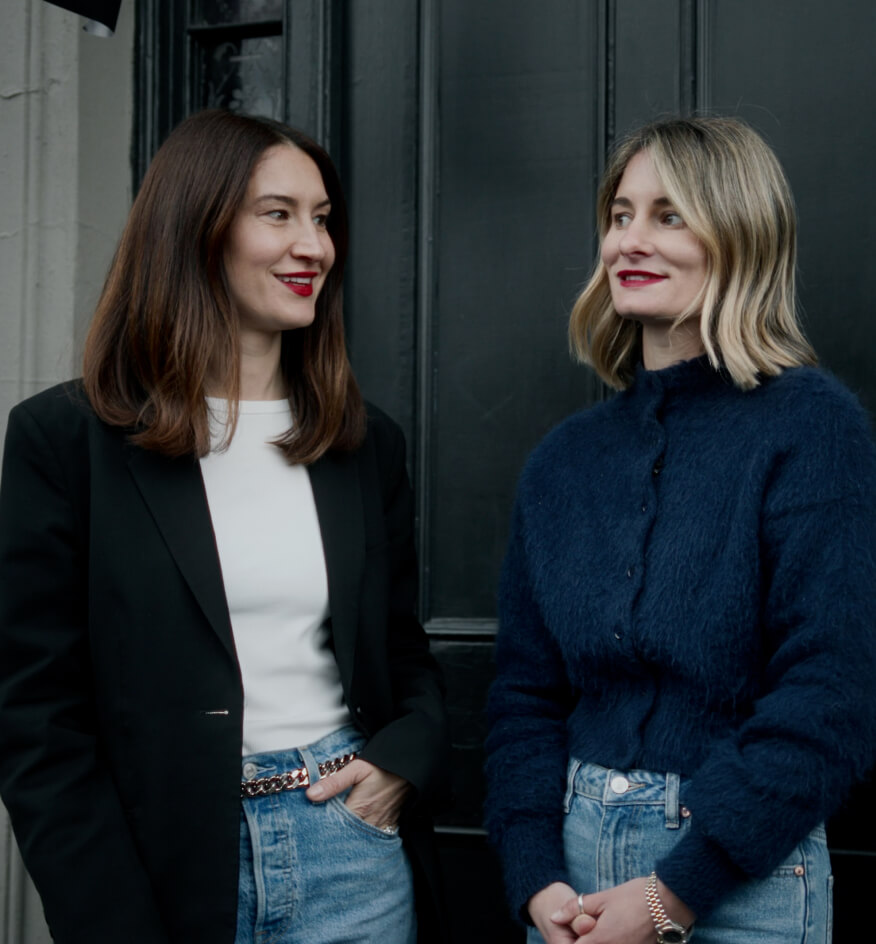
Giulia & Mattia, Love it Longer, Rathdowne Village
The Armani and Gucci bags that line Love It Longer’s shelves are a clear indicator of the demographic change that has taken place in Carlton North over the past several decades. According to the ABS census, the median weekly household income in Carlton North in 2001 was just under $1,200, by 2022, it had doubled to $2,400. Despite catering to a more affluent clientele, Giulia and Armanda remain firmly grounded. “We're not snobby… it’s about fashion, whatever looks good. There’s something here for everyone.” says Mattia. “We don’t take ourselves too seriously… you have to walk through an Italian kitchen to get here remember.” Giulia laughs. And it’s true, if it weren’t for some of the labels poking off the hangers, you’d be mistaken for walking into someone’s home.
“This little business, this little space is about connection, when people come in they talk to us, not just about clothing, we talk about the world, the community, we gossip… eyebrows, lipstick… it’s fun!” exclaims Giulia. “What people love is that they’ll come up here and hear a family discussion… they might hear Mattia and I fight, mum might yell at us…” [laughs]. Jokes aside, it’s precisely this connection that has helped build their reputation not just with customers, but with those who are consigning with them. “They trust us,” says Giulia, “a lot of money comes in, high-end designer bags, and they trust us because they know it’s just me, mum, and Mattia dealing with their money and I think that’s important. You’re not talking to someone you don’t know, it’s us.”

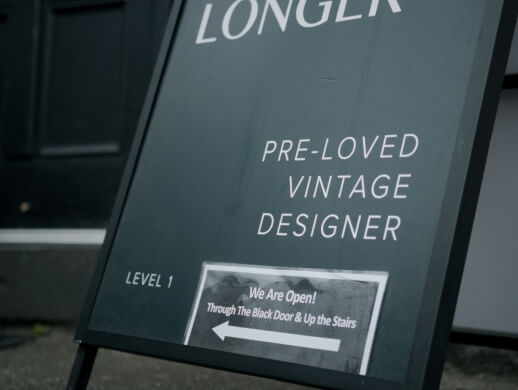
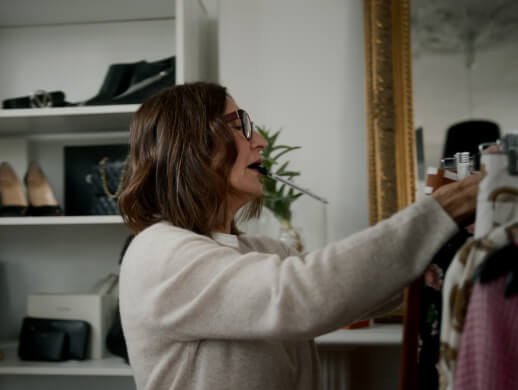
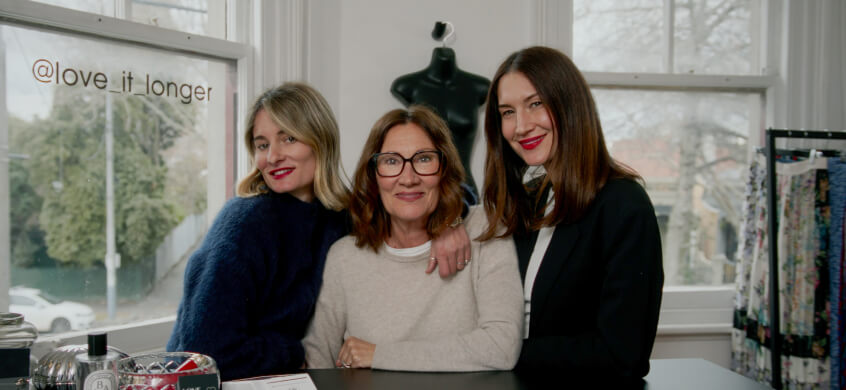
Similarly, downstairs at Biscotteria, the offering is much more than what’s on the menu. “I love it here,” says Jenny, a Carlton North local who visits daily for an espresso. “It’s not just the food, they’re just such wonderful people. It’s an important part of our community.”
The interior is unpretentious and welcoming; window cabinets display trays of freshly baked cakes, pastries, focaccia and panini; Italian discussions can be heard coming from the kitchen. It’s as Italian as it gets, but you don’t have to show your passport upon entry: “We’re lucky to be well-placed, so it’s easy access for a lot of the Italian-Australian community, but over and above that, the Australian community, we service our locals.” says Tony Nicolini, Joe Cavallaro’s son-in-law who plays an active role in the business.
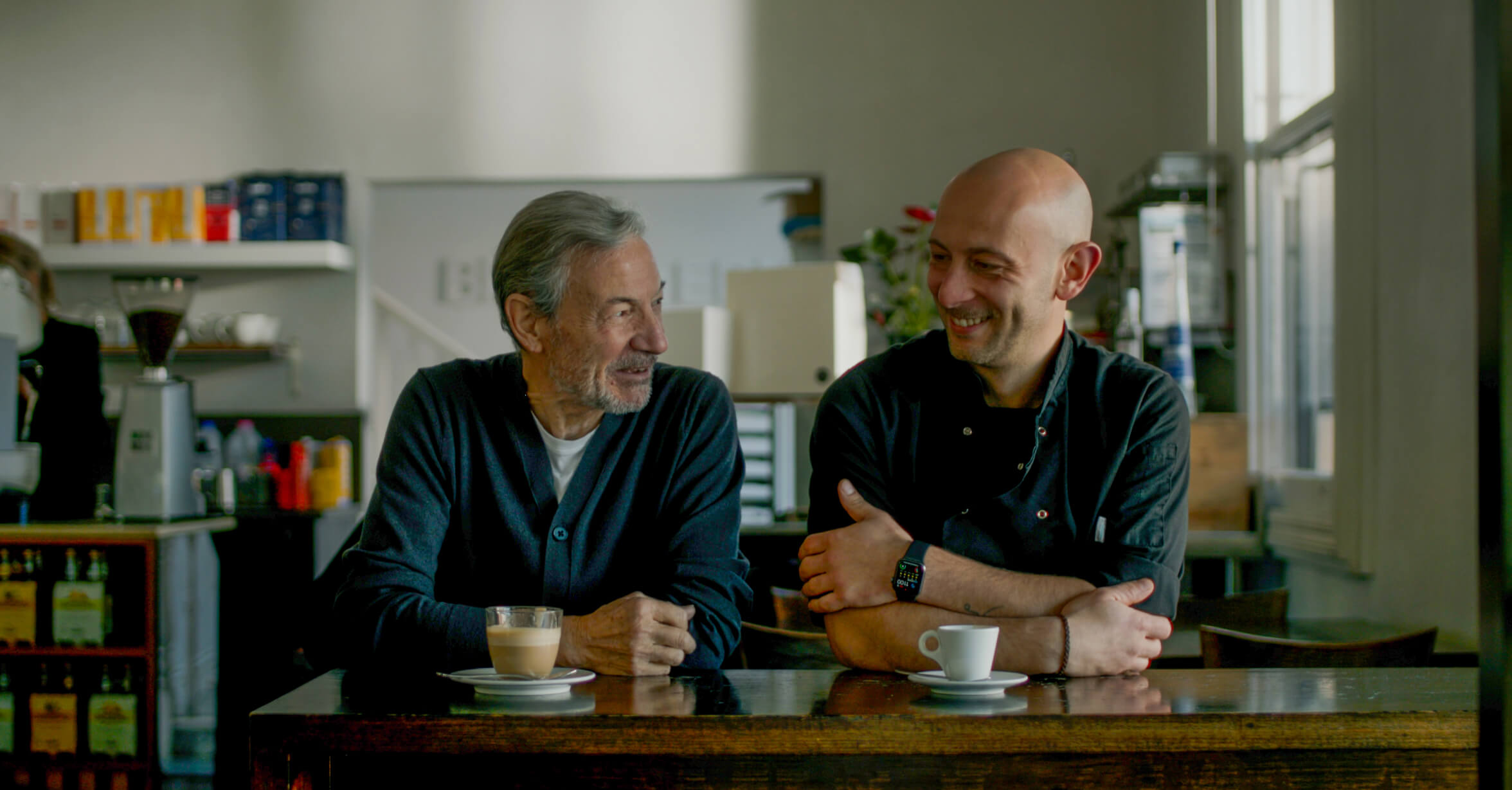
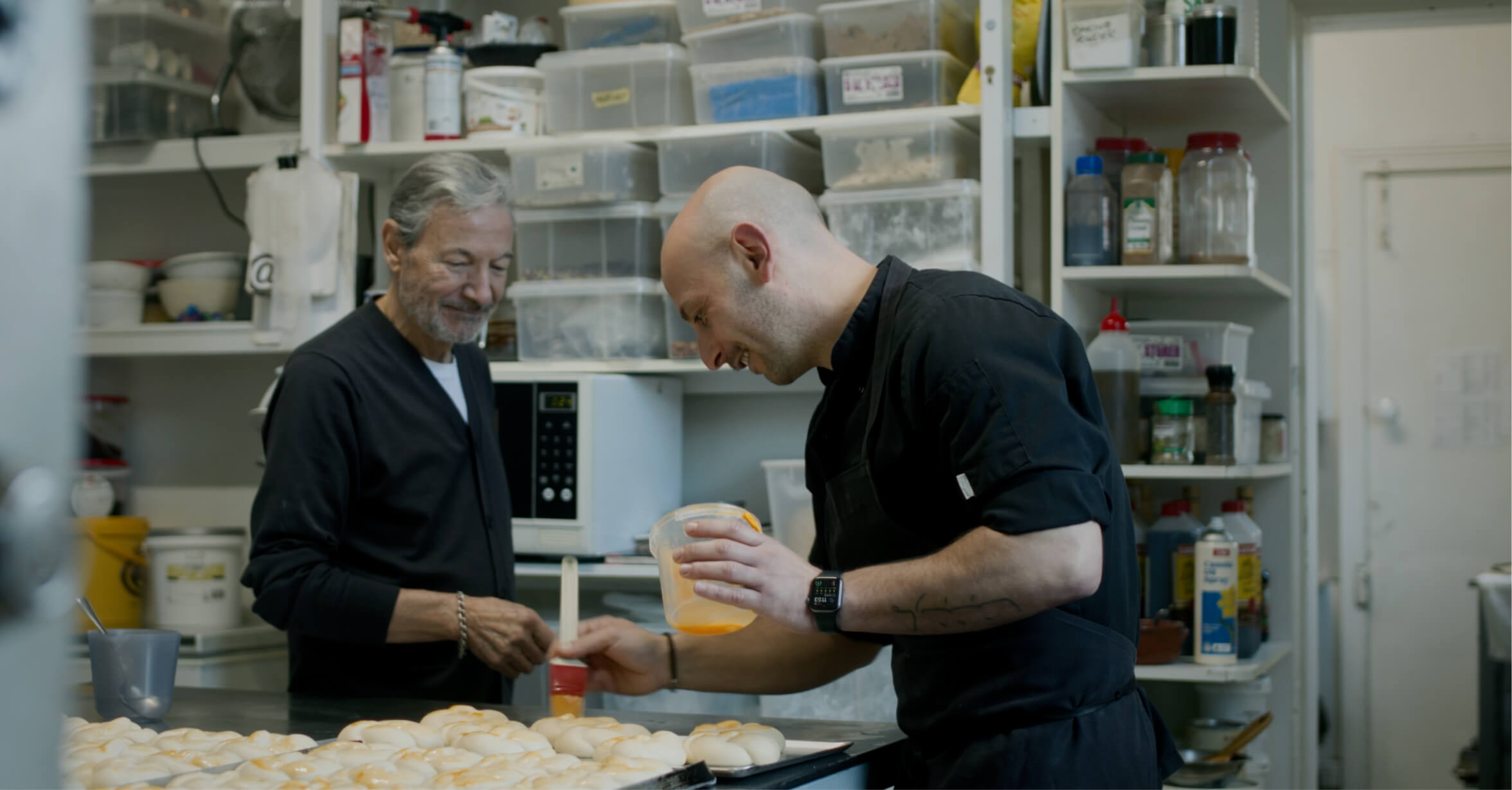
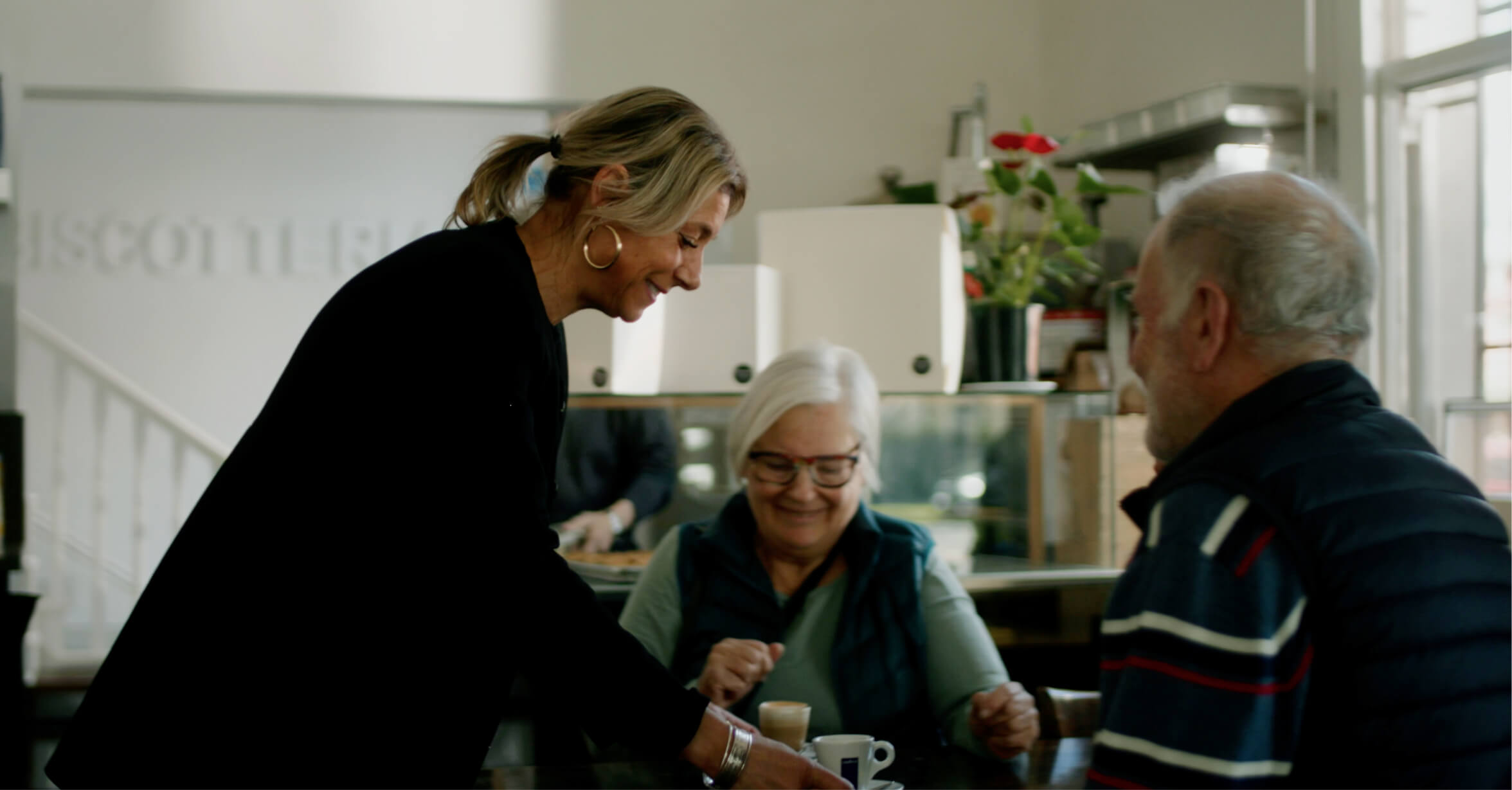
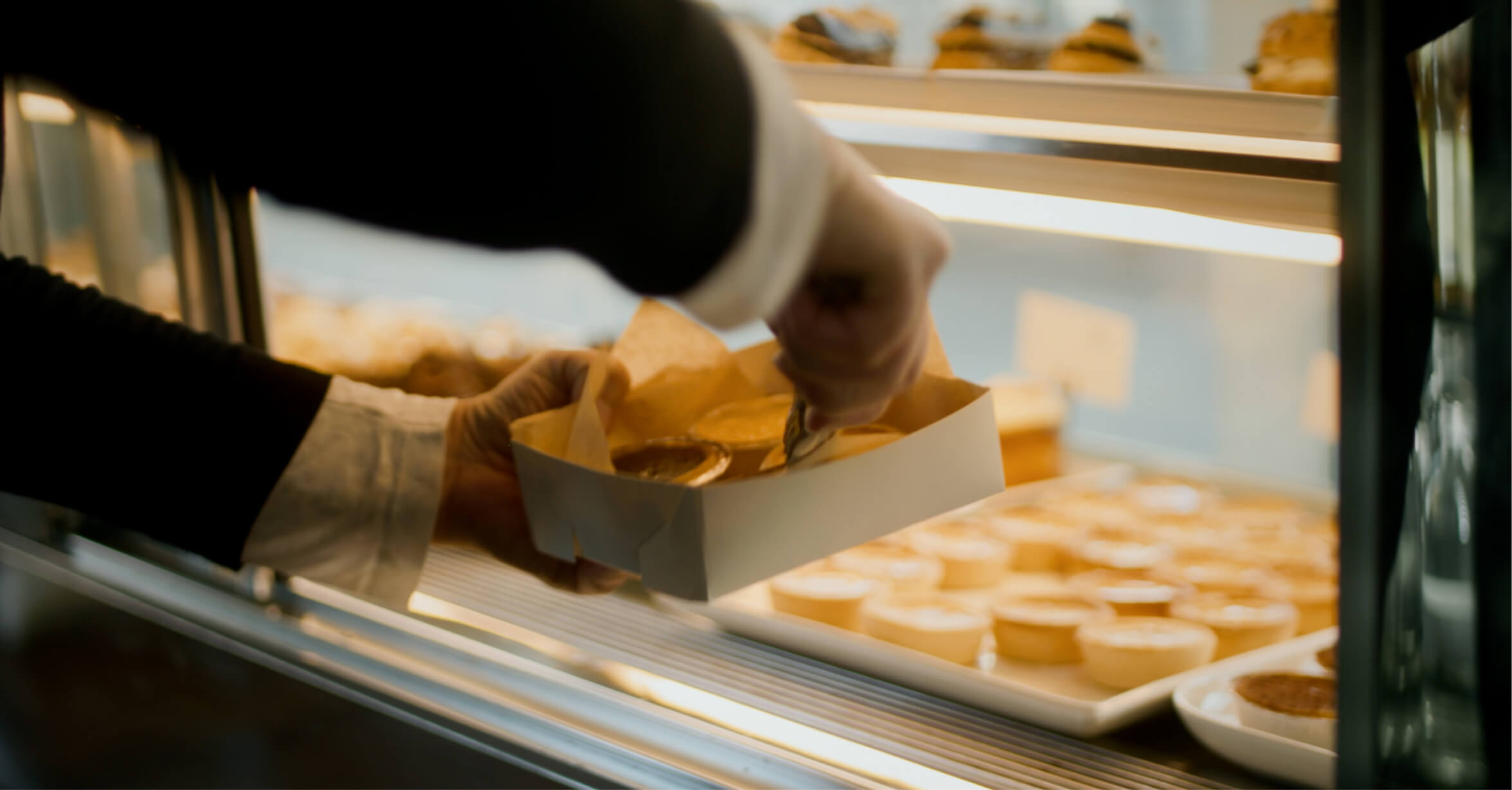
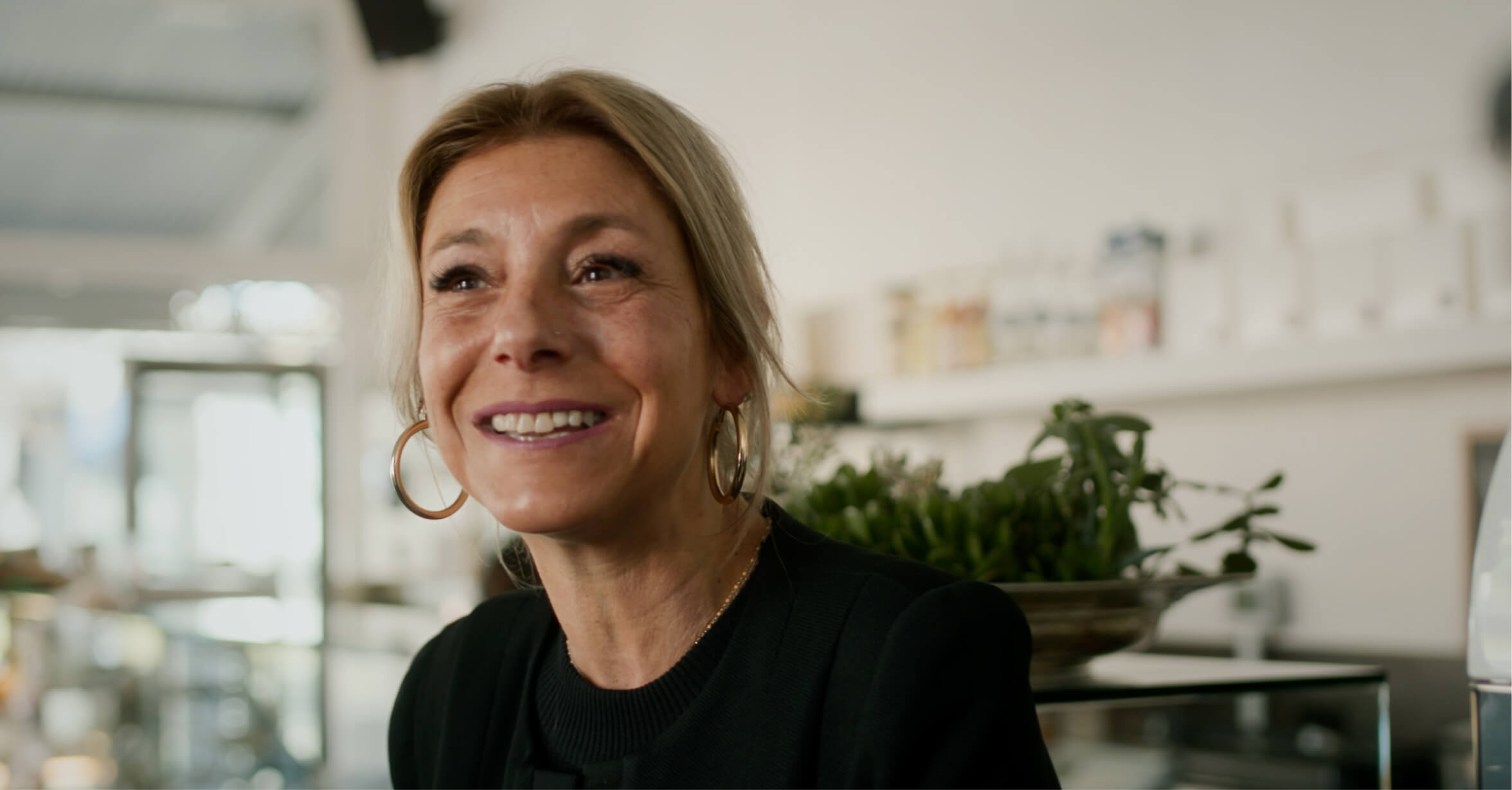
As one of the original founders of D.O.C (a Carlton-born institution of Italian gastronomy), Tony has himself played an integral role in forging Melbourne’s Italian identity. “Whilst [Biscotteria] is a pastry shop it’s very much an espresso bar,” he explains. “The espresso bar is Italy’s cultural gift to the rest of the world… The experience of coffee is so much more than what you find in a cup, it’s that two or three minutes of banter, with your barista, with the people operating your local café… That's what the corner espresso bar was built on, the premise that it's not just a transaction… you're also coming to be a part of something, a part of a community, an extended family."
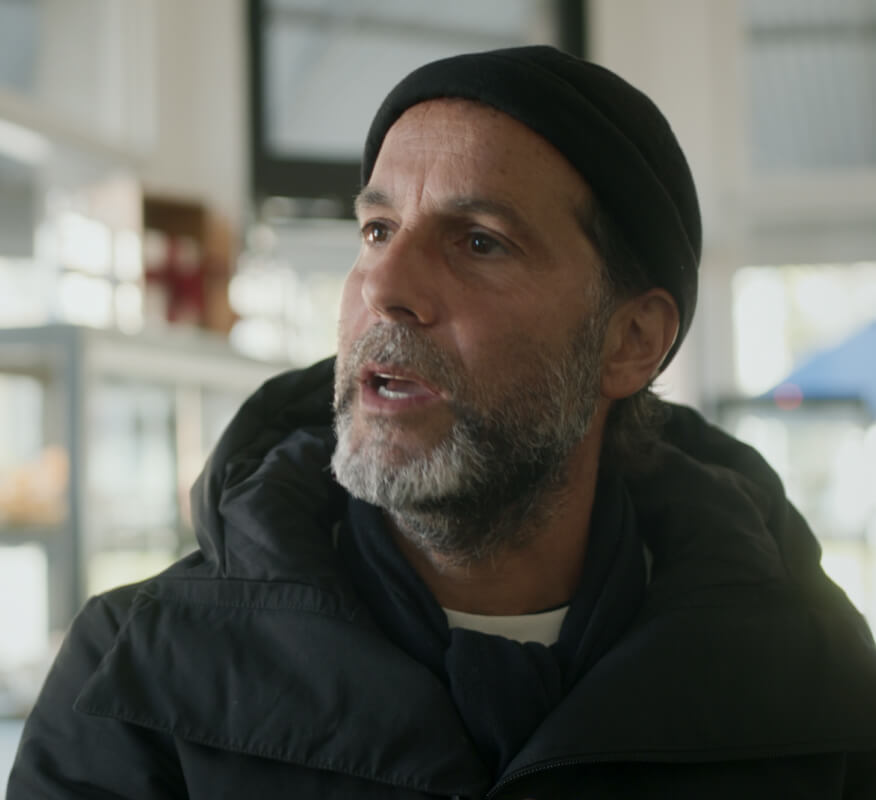
Tony Nicolini, Biscotteria, Rathdowne Village
In 1894, Walter Large opened a tobacco store at 412 Rathdowne Street. He incorporated a hairdresser into the shop and after thirty years, moved the business up the road, running it until 1952. For over half a century, Walter’s was a constant face and a reliable place for Carlton North locals.
While our addiction to tobacco may have subsided, the ritual of visiting this same corner store every morning has not. Opened in 2017 by a young Connor Cunliffe, Fledgling Espresso is the newest resident of 412 Rathdowne Street and is the first port of call for many every morning.
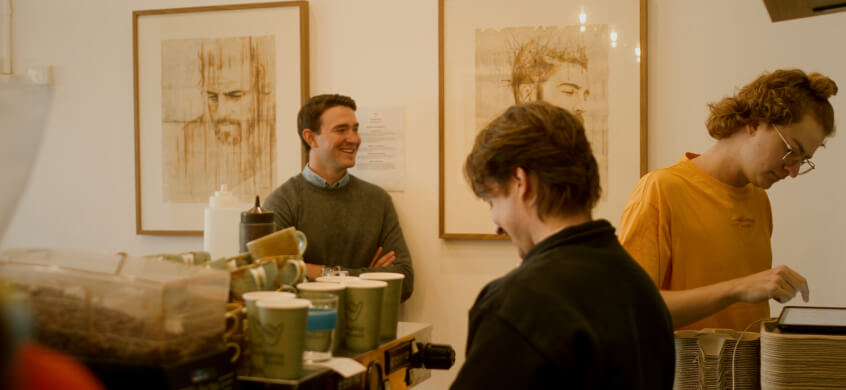
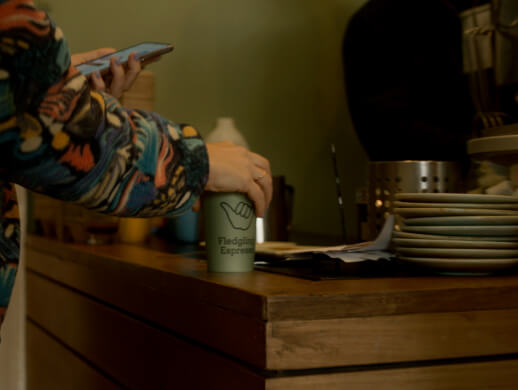
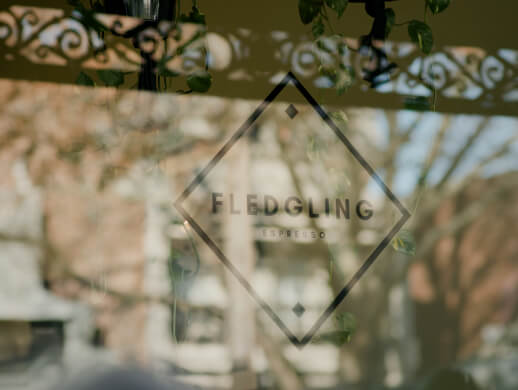
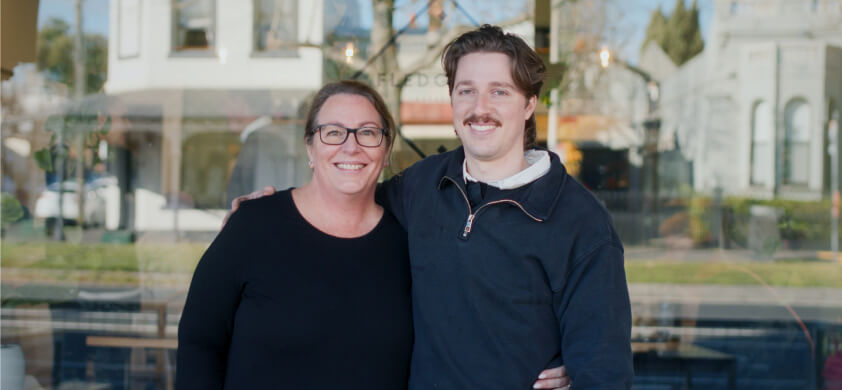
While the business was already performing well, it was through COVID that Connor and his mother Vanessa, who manages the café’s back of house, became an everyday presence in people’s lives. “We were one of the only places open every day, so we became that reliable café to go to and we were also the only point of face-to-face contact for a lot of our regulars,” explains Connor. Since then, the coffee machine hasn’t stopped running. “I'd say today, 90% of our customers are all regulars that come in once, twice, sometimes three times a day.”
Colloquially known as ‘Flegends’, the cafés devotees start flowing in at 7 am, greeting each other by name, picking up conversations where they’d left off the day prior. “It's a really good community that we've built here at Fledgling,” says Connor, “All of us know each other’s back story, we know their families and they know mine. There’s a lot of fantastic banter that happens.” Even his dad, a commodities trader by day, also picks up the occasional weekend shift. “He loves it. He helps out on the floor. Some days are really good with him. Some days I’m like “Dad, you can't be here ever again,”" he laughs.

Connor Cunliffe, Fledgling Espresso, Rathdowne Village
Percy Pearson ran his eponymous ironmongery at 378 Rathdowne Street for fifty years. A radio enthusiast, when the first radios not requiring headphones became available, he mounted a loudspeaker outside the shop and relayed an Ashes match for the whole street’s enjoyment. Terry O’Rourke, a local who would go on to eventually take over the business, recalls the crowd that gathered was enough to hold up the cable trams.
Today, this sense of camaraderie and community lives on. Phil Sherring, a local, has assumed the role of resident parking inspector. He goes and checks the tyres on the cars of local business owners to see if they have been marked with chalk and alerts the merchants. “If we get a parking ticket we put it on Phil's account,” jokes Frank Siliato, co-owner of Rathdowne Deli, the business that has occupied 378 Rathdowne St for the last decade.
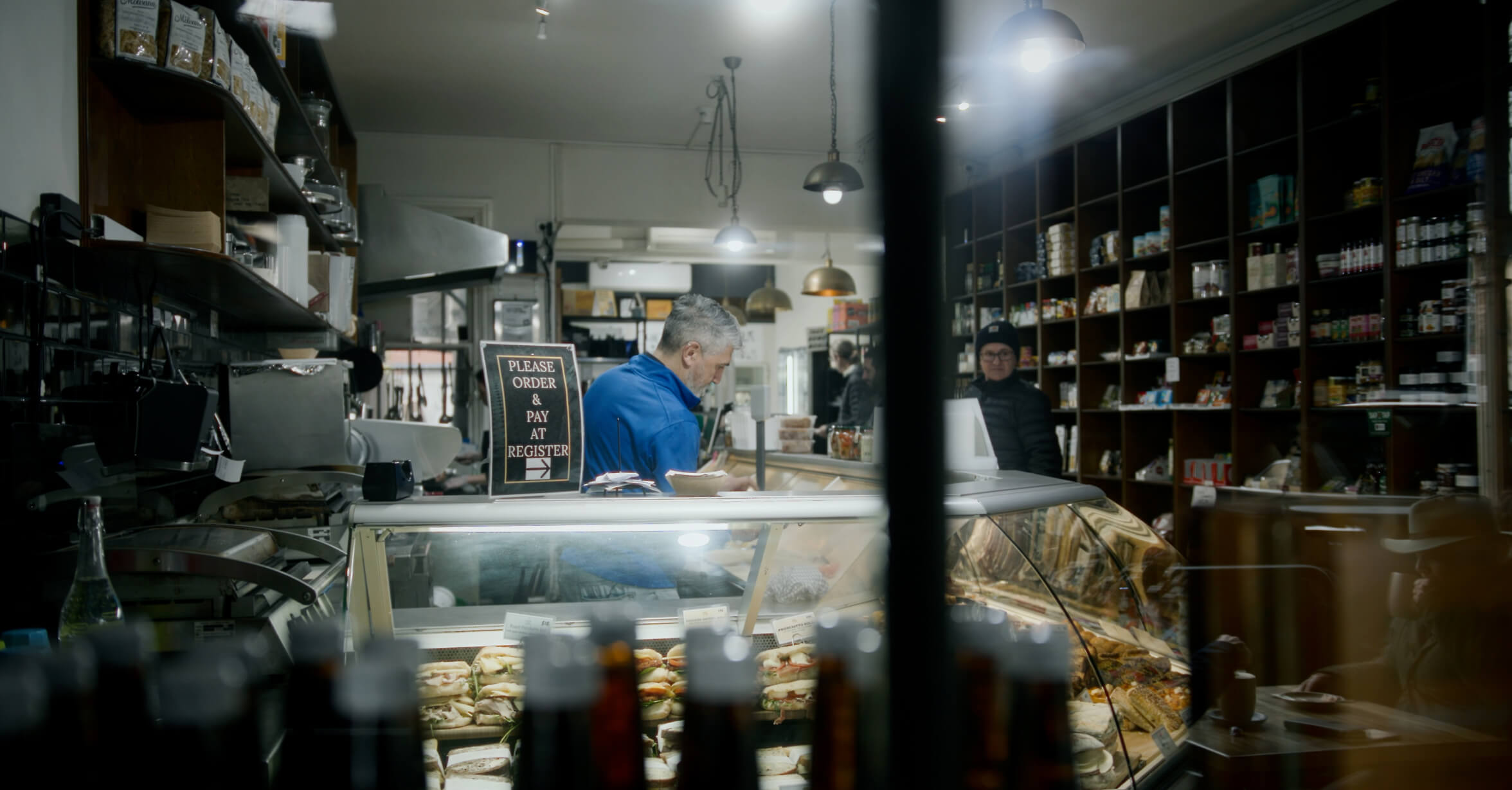
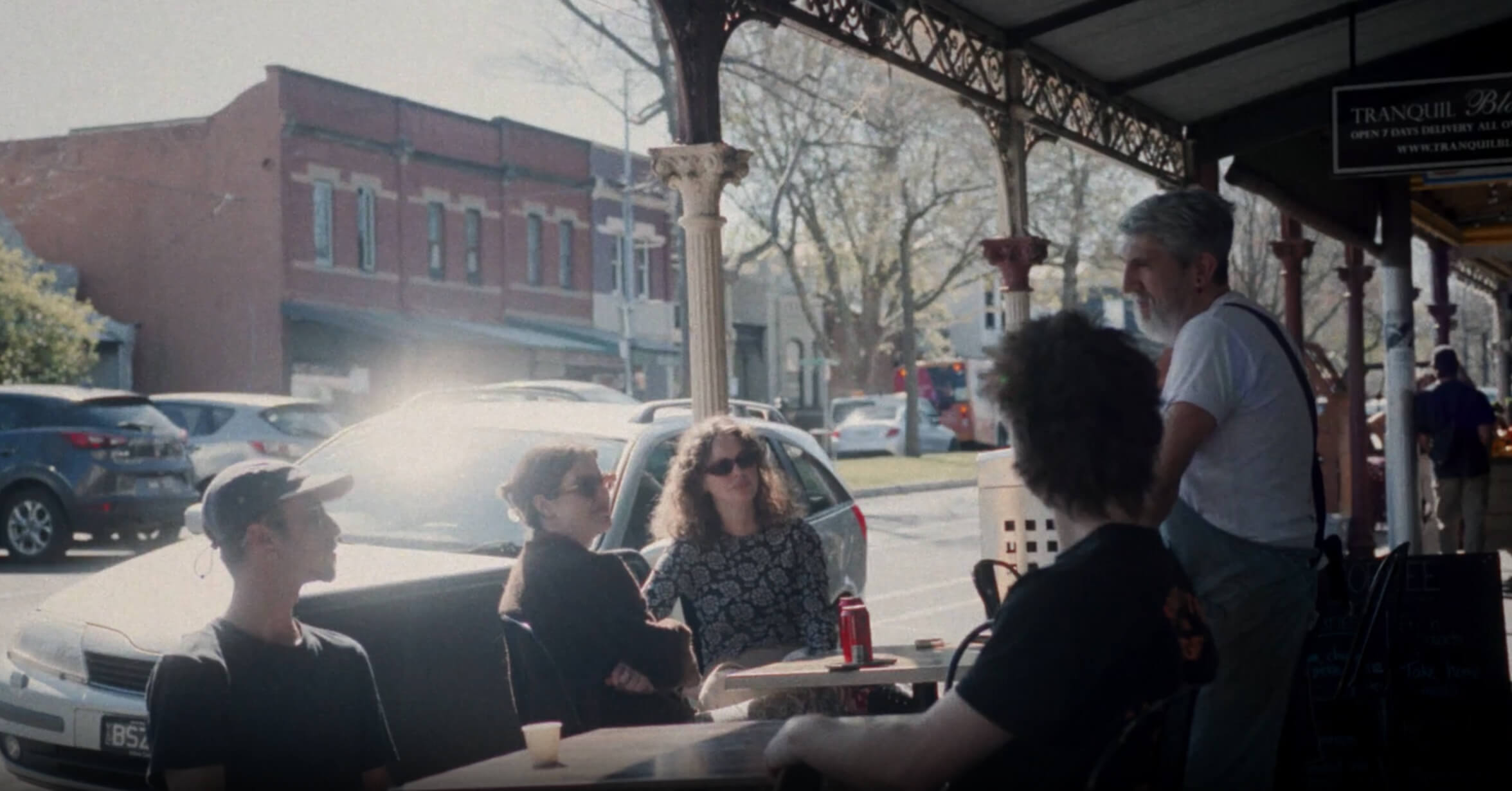
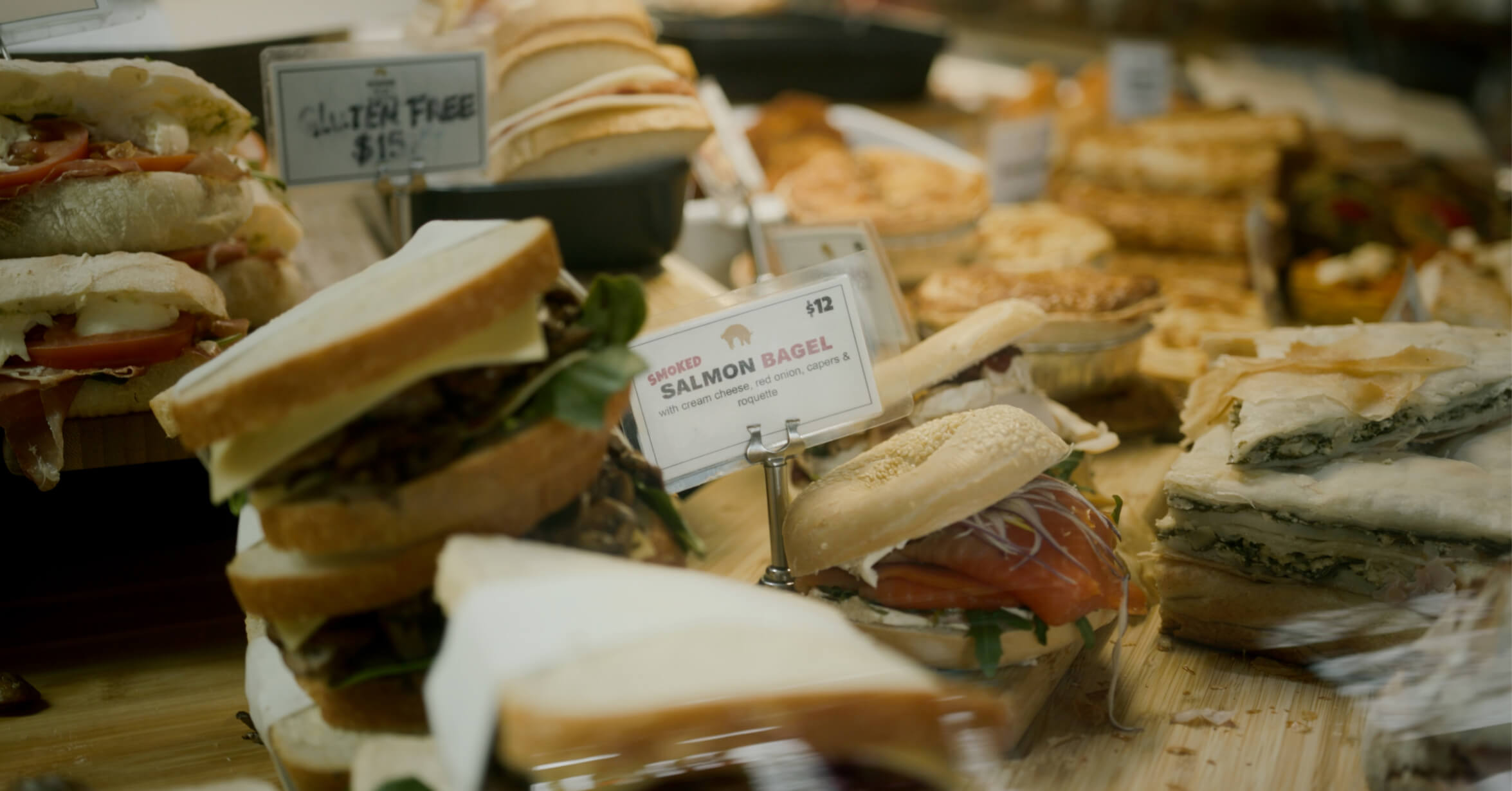
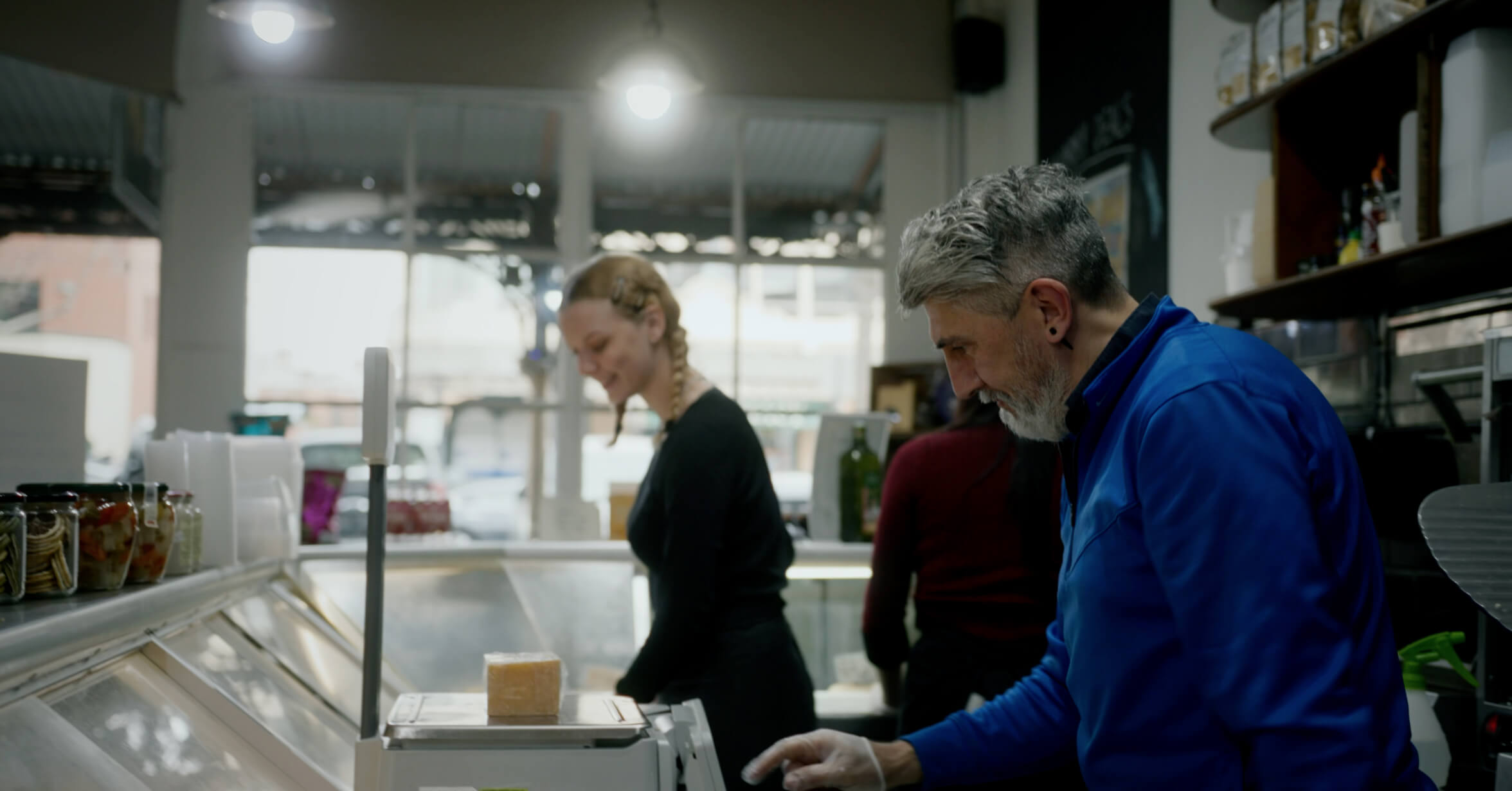
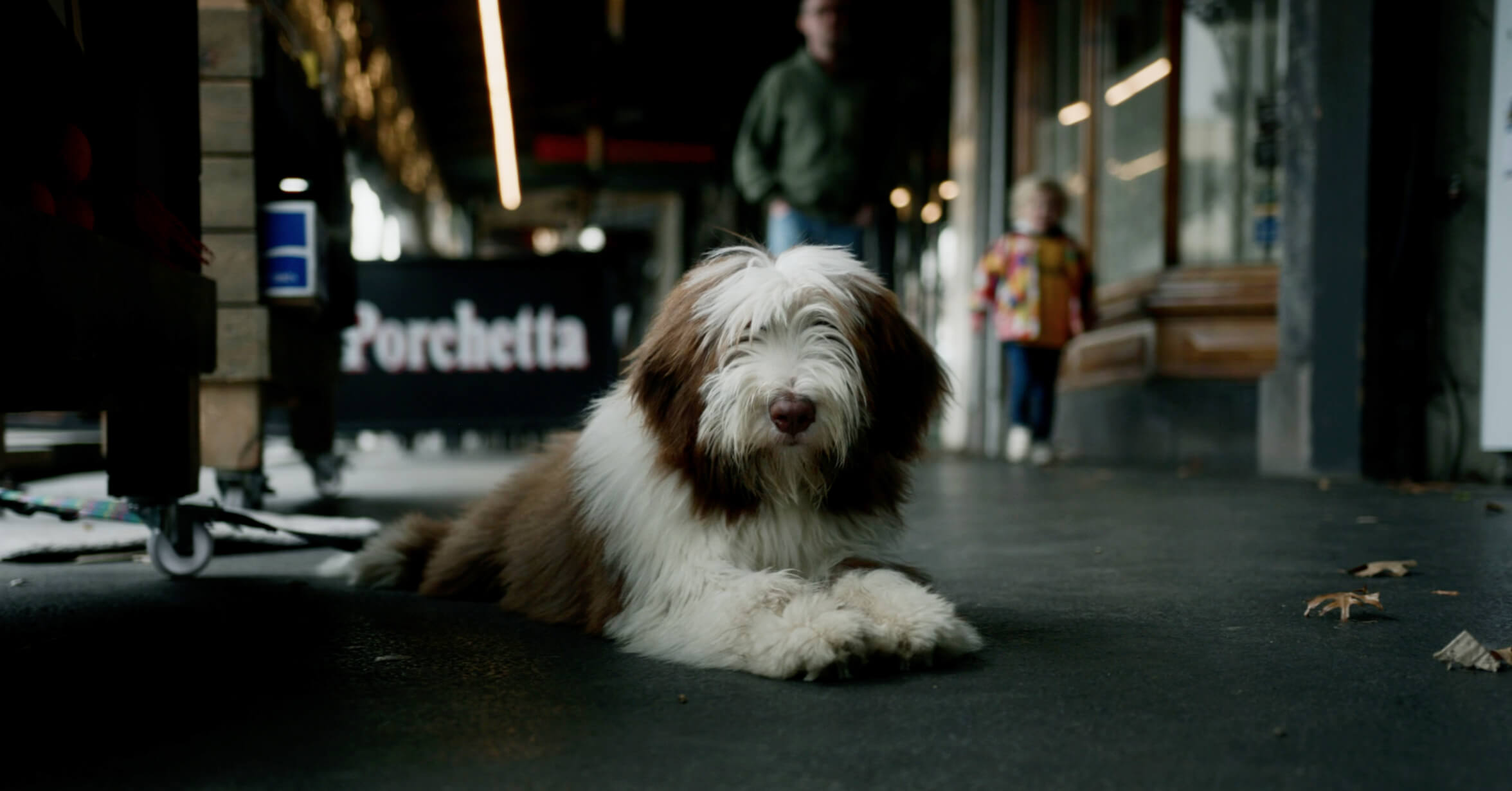
While Frank and his business partner Larry have only been running the deli since September 2022, the business has played a central role in the community since it first opened almost a decade ago. “It's more than just a job, it's more than just a business. Especially knowing we help out a lot of the locals,” says Frank. The deli stocks a huge range of items, from pantry essentials to specialty European products as well as fresh meals and coffees, but the inventory is ever-growing. “We will cater for different sorts of requests.” explains Frank, “For example, somebody wanted whole chestnuts, which we don't normally have, but we ordered them in for them.”
It’s a service you won’t get at a supermarket, which is arguably why you won’t find one within two kilometres of Rathdowne Village. Here, shopping is done the old-fashioned way, “People will go around with their baskets, and they’ll go to the fruit shop, they’ll go to the bakery… just pick up things along the way… It’s a typical village!” says Frank. As for the locals, Phil agrees: “It's a great street, it's a very social street. There are a lot of very good people here and everyone seems to talk to everyone else. In fact, a few people have said that it's actually one of the best streets in Melbourne. I believe that.”
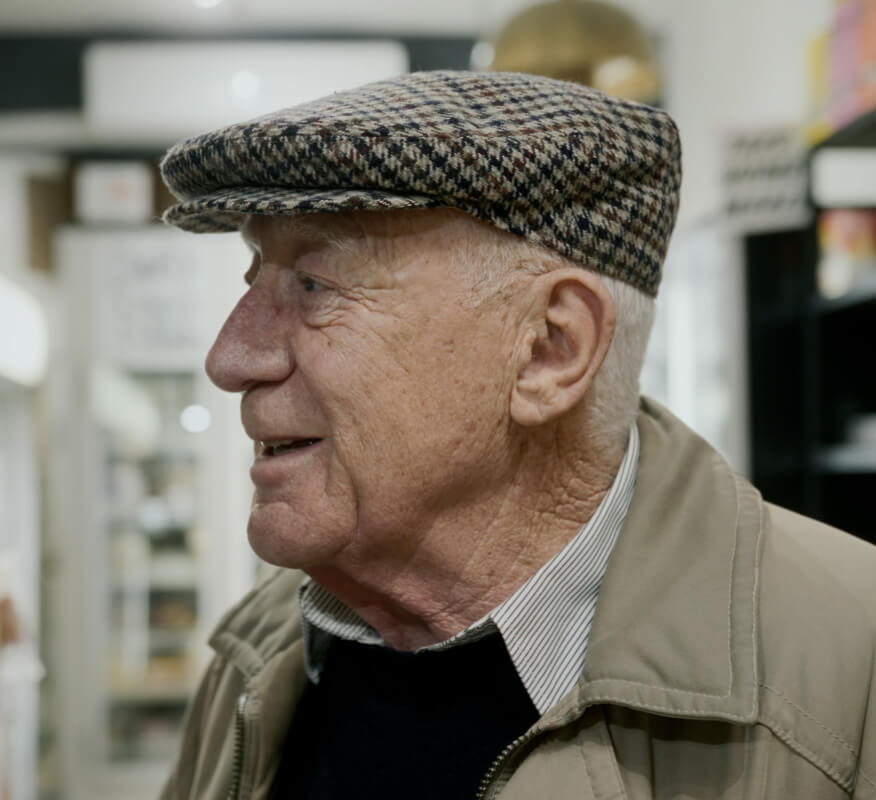
Phil Sherring, Resident, Rathdowne Village
For sister and brother Naida and Naid Asconio, who opened their Spanish/Latin American restaurant, La Tonada, at 687 Rathdowne Street amid a global pandemic, the street offered much more than just a place to set up shop. “People supported us so much,” explains Naida, who turned to serving paellas on the footpath during the worst of the social distancing restrictions. “It was very difficult, but on the other hand, we see how humanity, when we have challenges, we come to help each other and we come together.”
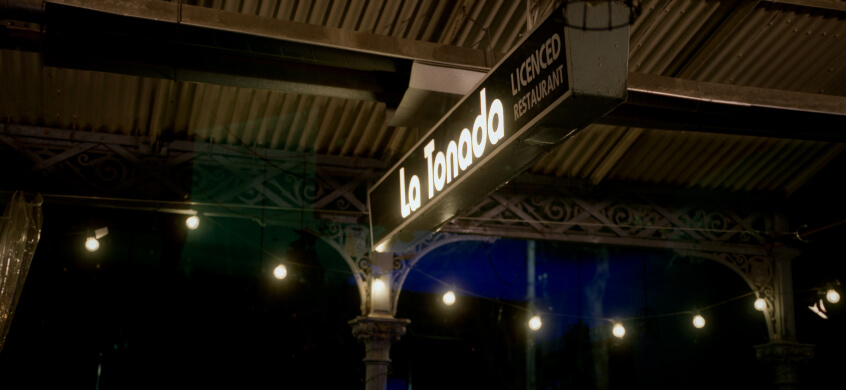


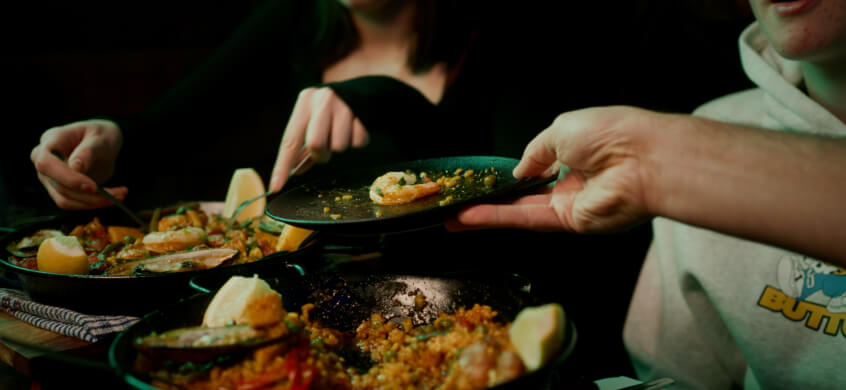
Prior to opening the restaurant, Naida had been working as a kitchen hand. When she lost her job, she turned to the Spanish chef, Raffa, who she’d been working beside. “When I heard the idea and the concept [for the restaurant]... I was hesitant at first,” he explains. Having worked as a chef in hotels, he knew his experience could earn him more elsewhere, “but I didn’t want to see them fail,” he says. “Life is not all about money… I also saw my younger self reflected in them. I have a restaurant in Spain that I started at exactly the same age that [Naida] is now and I would have loved someone to help me then too.”
Now in its second year, La Tonada shows no signs of slowing. Offering live music every Sunday, and a menu that fuses the best of Spain and Latin America, the restaurant attracts both those looking for a taste of home and abroad. “La Tonada gives me energy, it gives me passion,” says Naida, “I'm showing my culture, my food… my language, my music.” But by digging below the surface, you realise La Tonada also shows so much more. It is also a story of family and loyalty that plays out in so many of the businesses in Rathdowne Street.
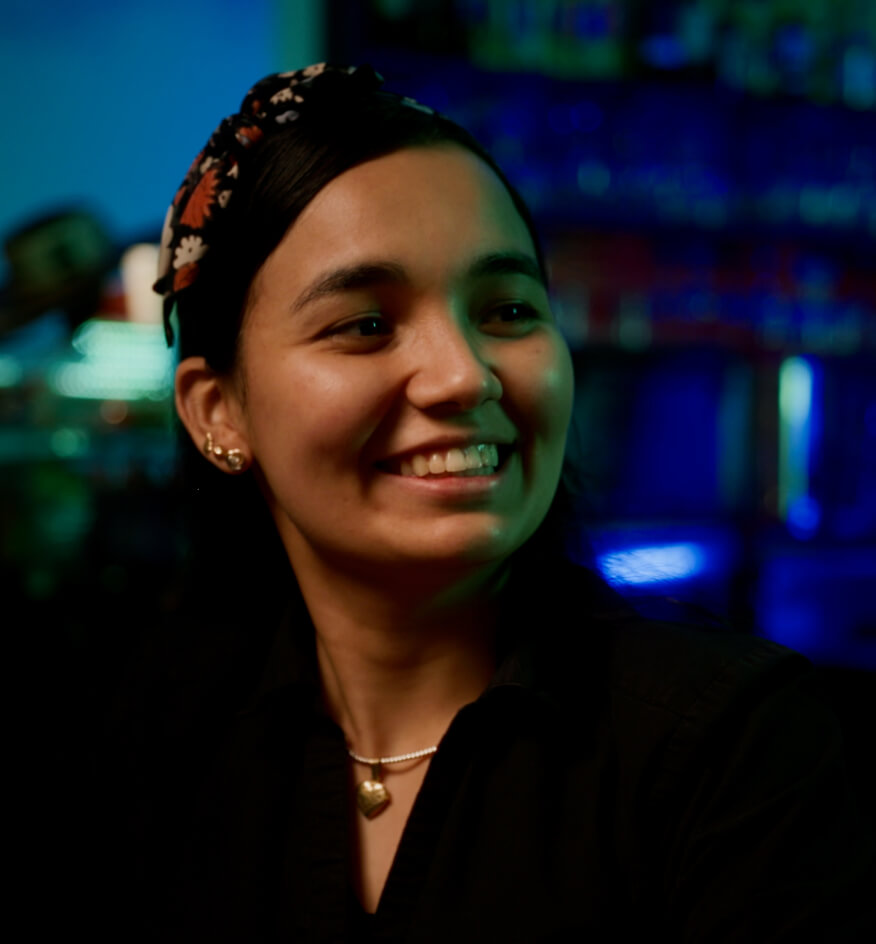
Naida Asconio, La Tonada, Rathdowne Village
There’s an inherent culture of connection on Rathdowne Street. Whether it’s something in the water or a legacy started by those who began trading here over a century ago, the street continues to attract businesses that value people, and people who value businesses. As in the past, an intergenerational, multicultural community nurtures this street, making it fertile ground for conversations to be had, relationships to be formed and businesses to thrive. And in an era of online shopping, self-checkouts, and food delivery, it takes more than it used to to achieve such a feat. In fact, it takes a village.
We extend our sincere gratitude to the Carlton Community History Group for their invaluable historical insights, which have enriched this article.